Lecture 1 (2h.) The conception of foreign languages

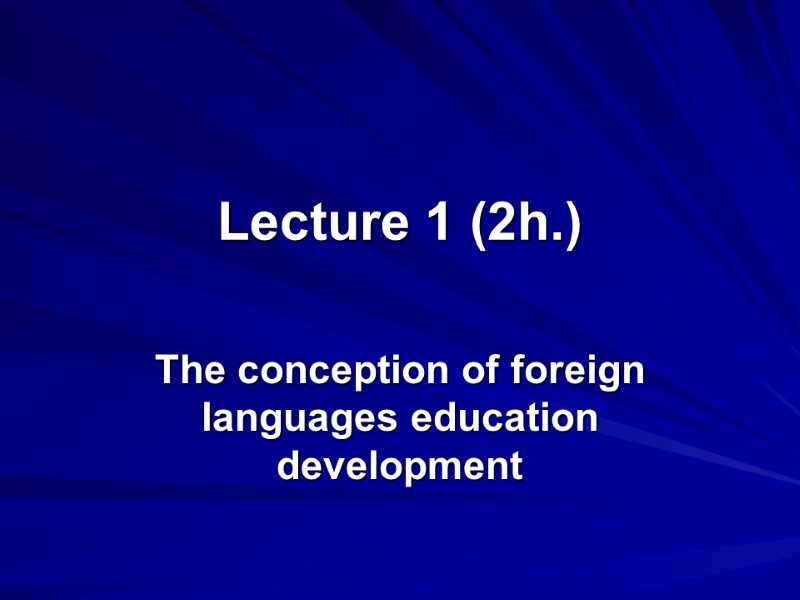
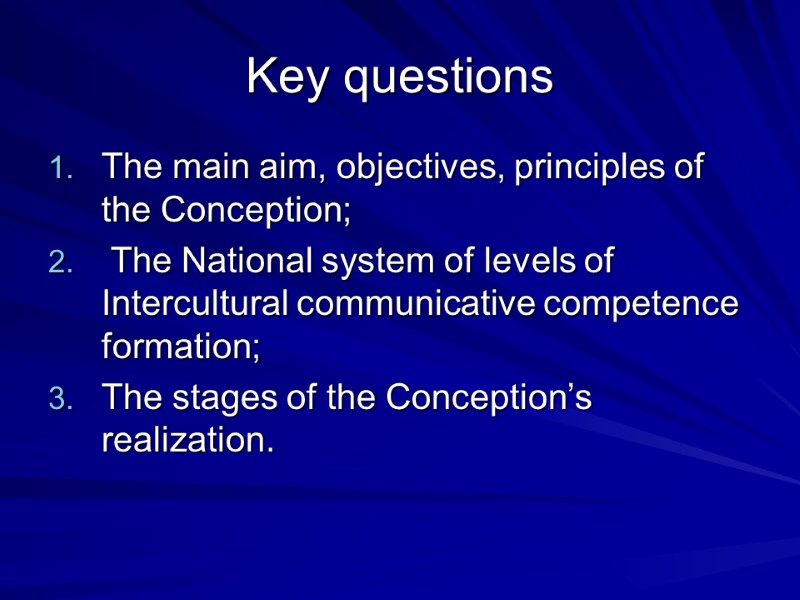
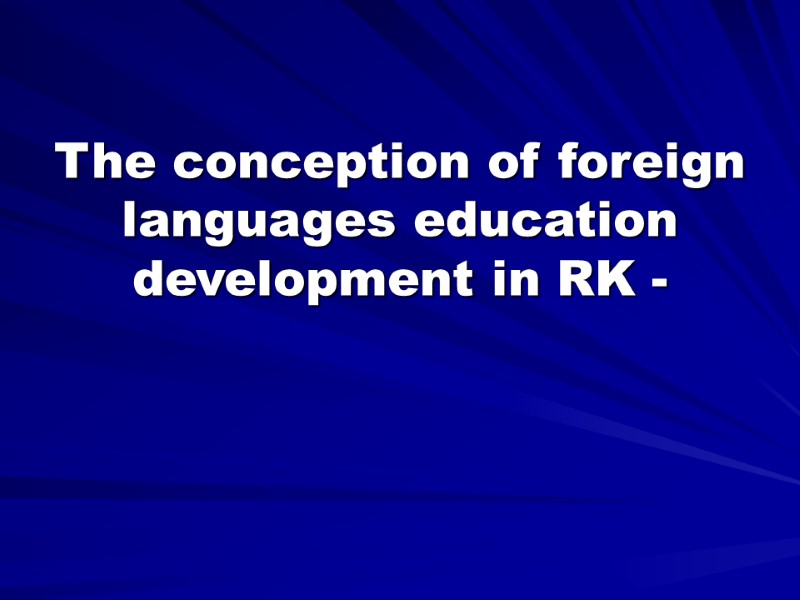
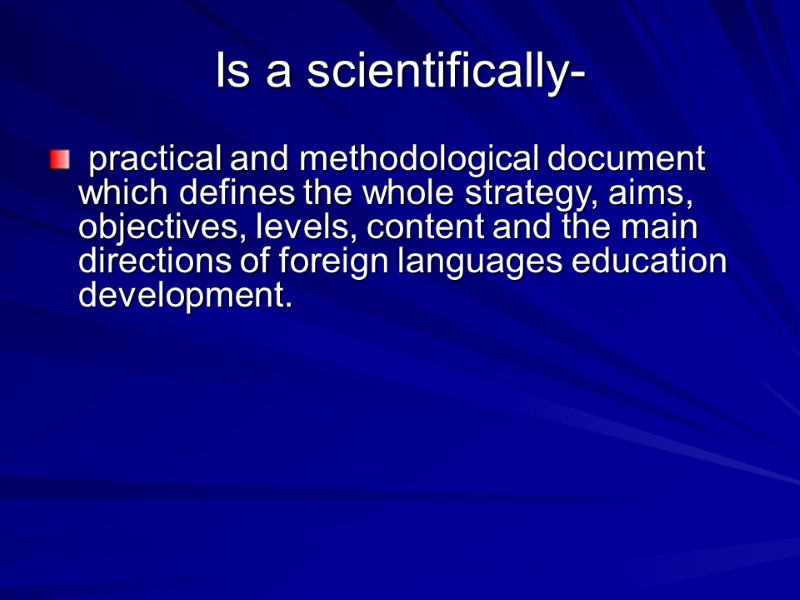
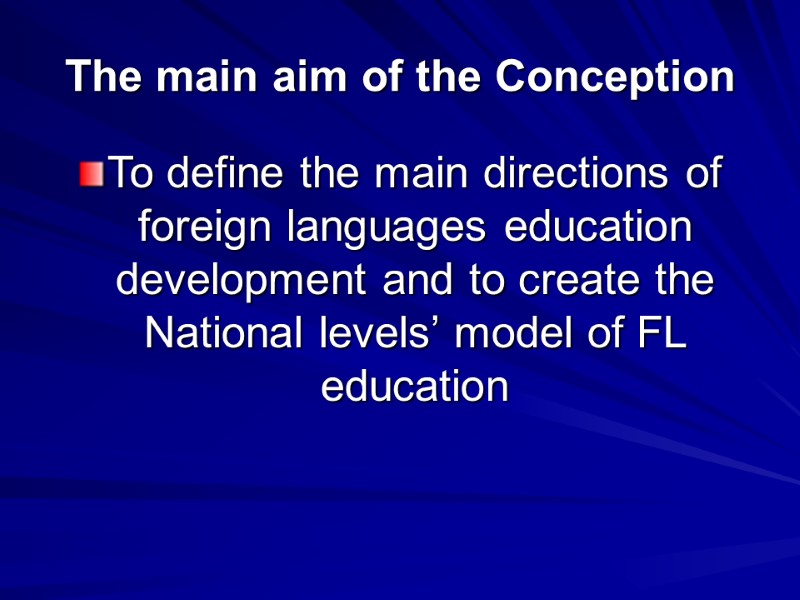
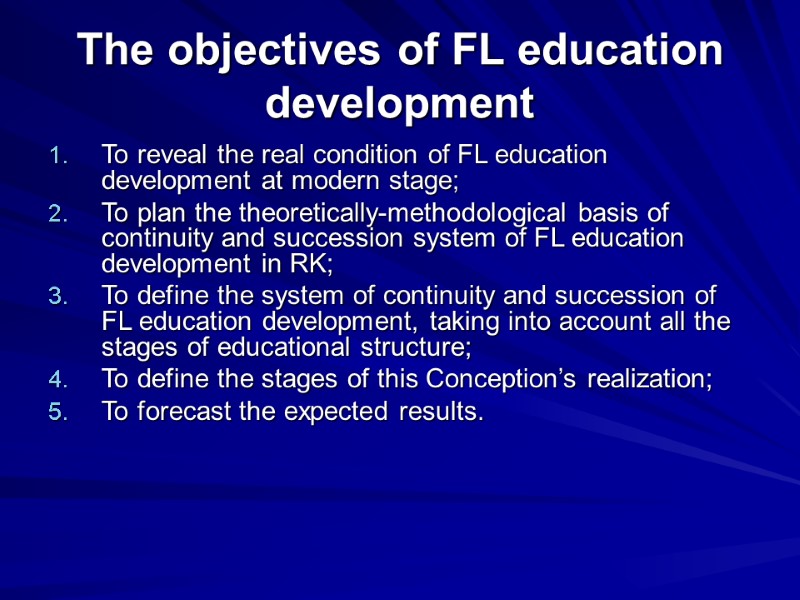
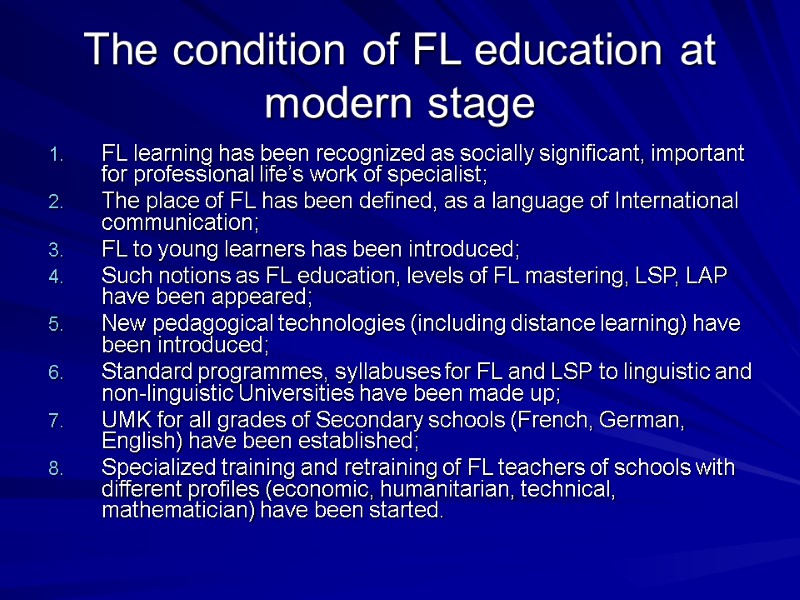
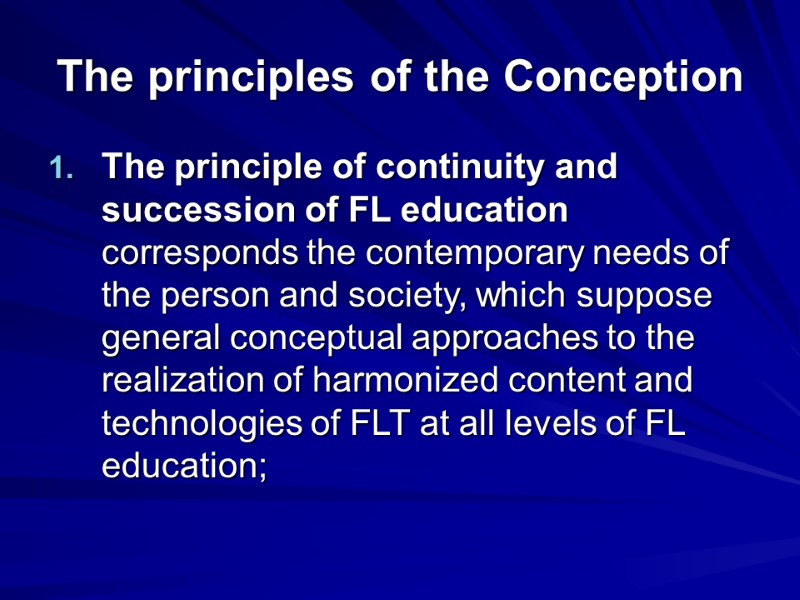
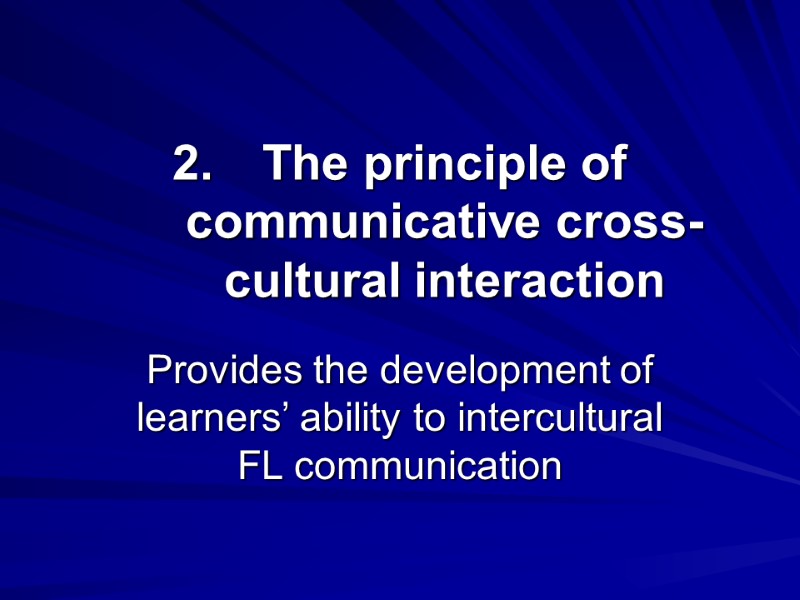
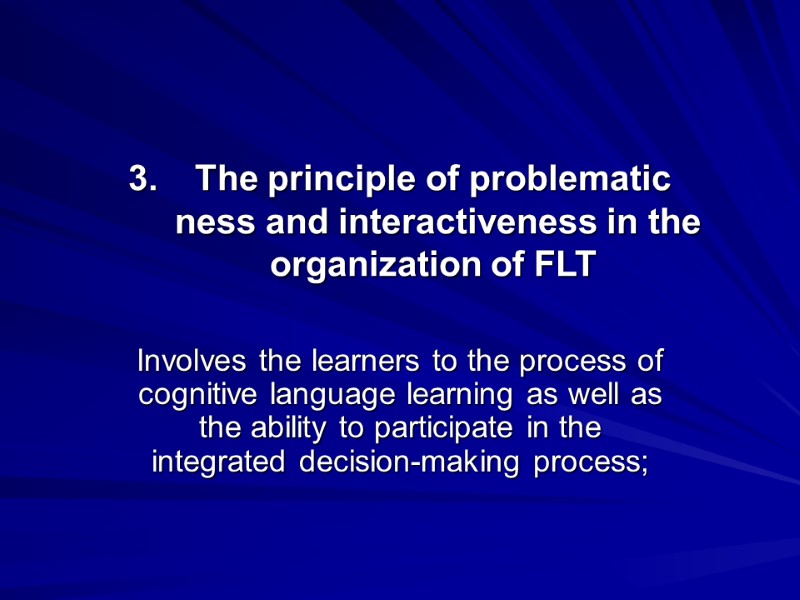
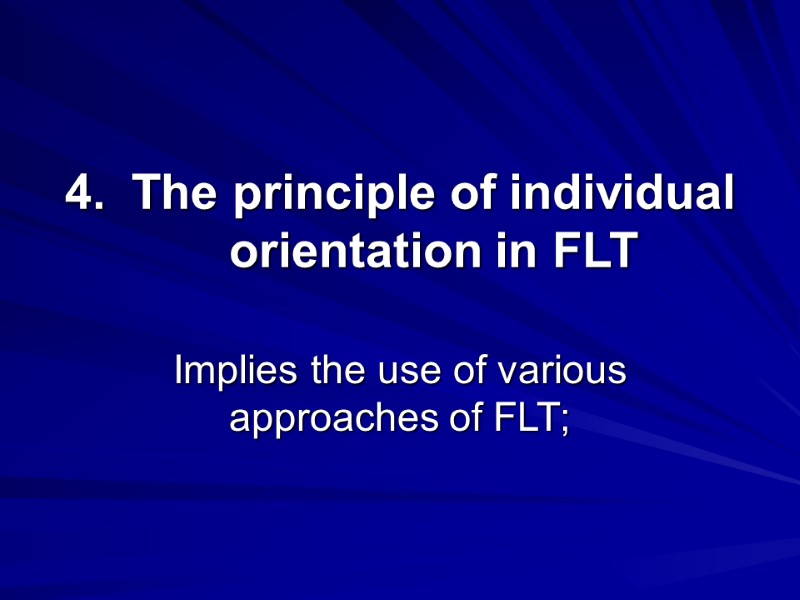
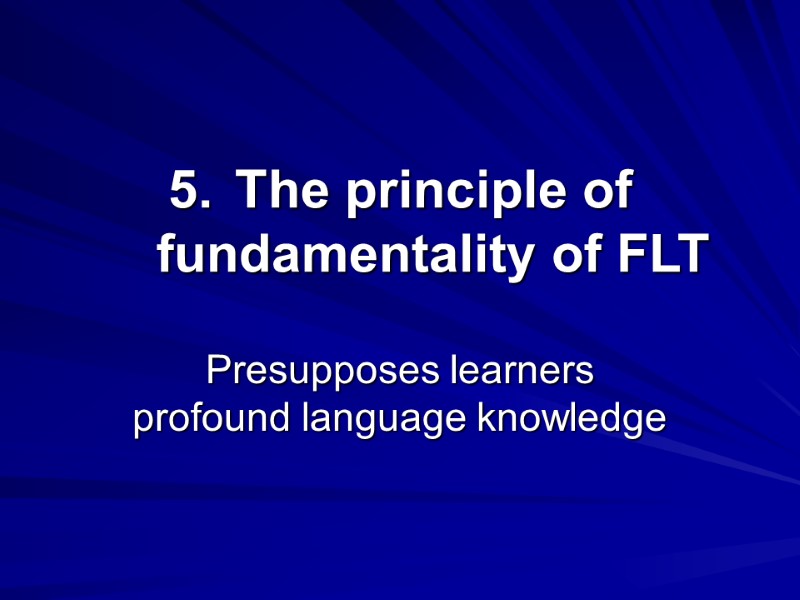
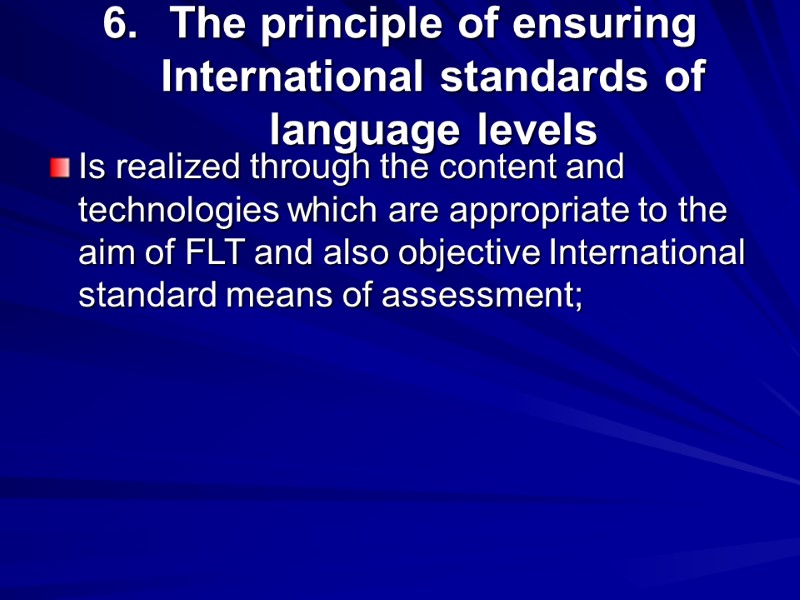
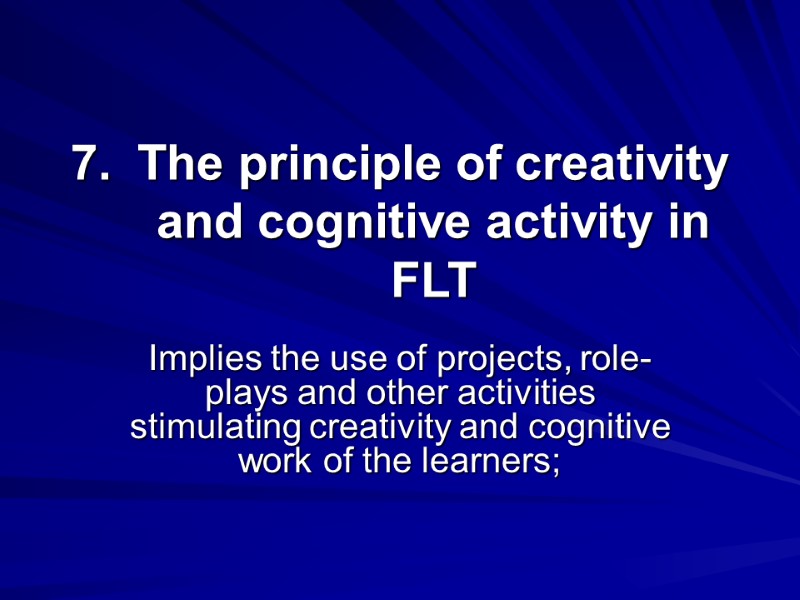

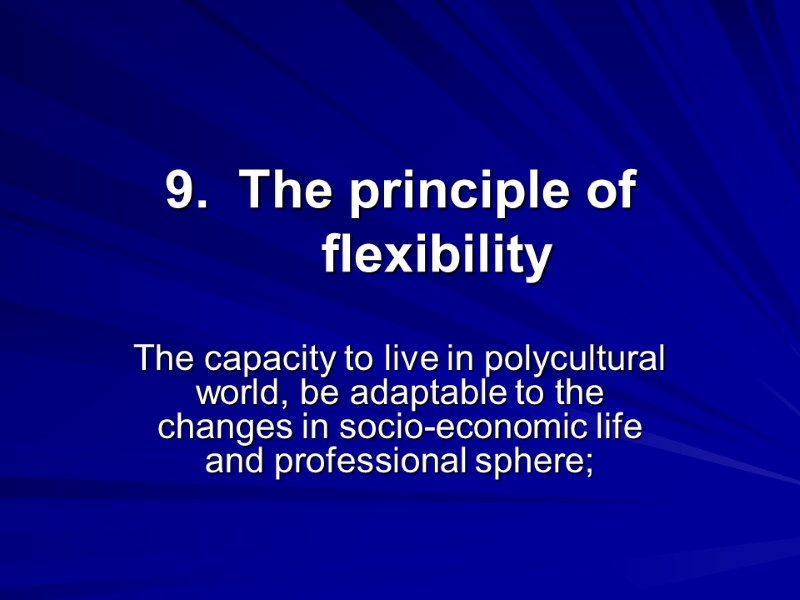

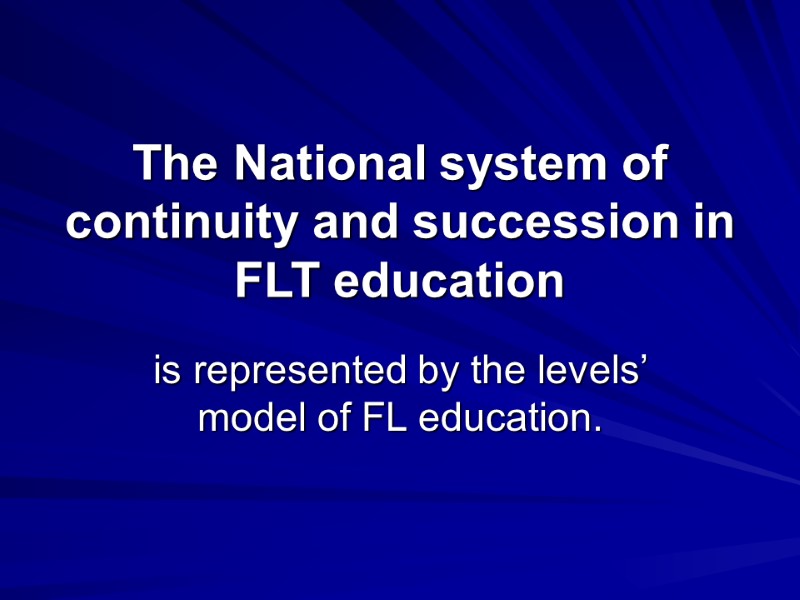
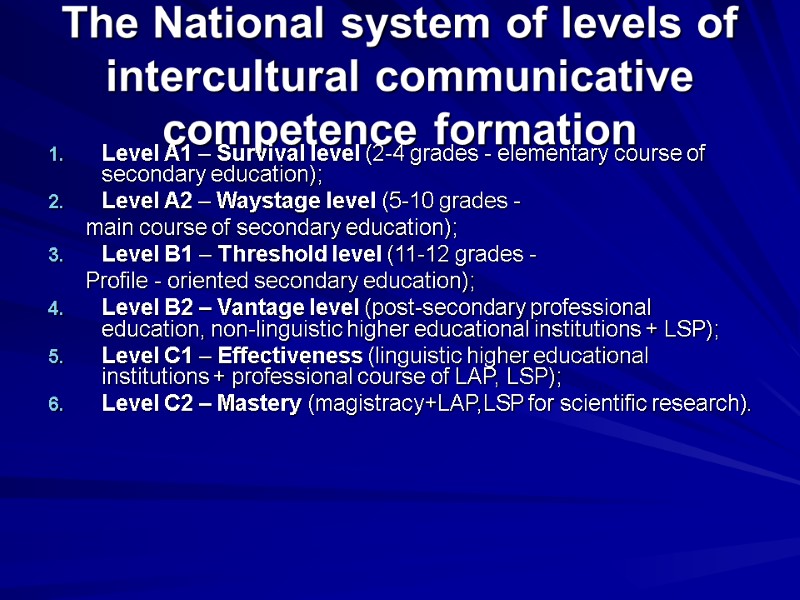
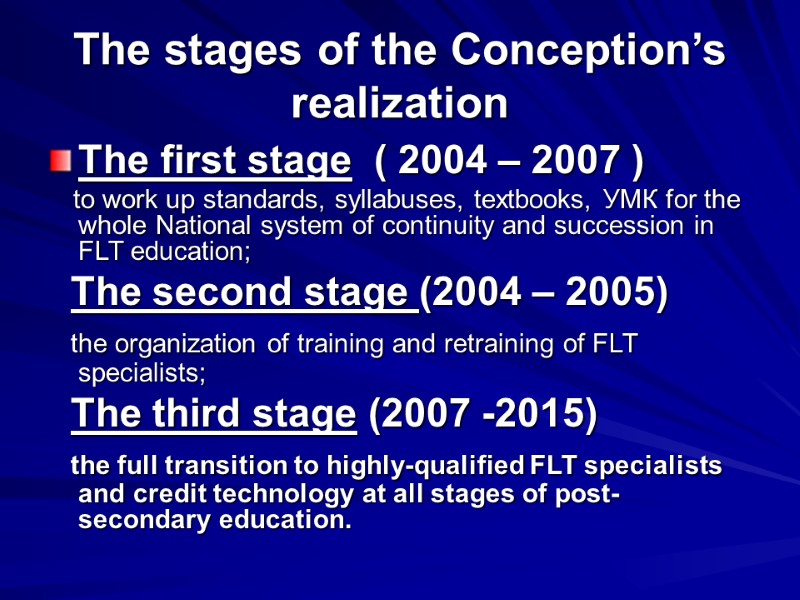
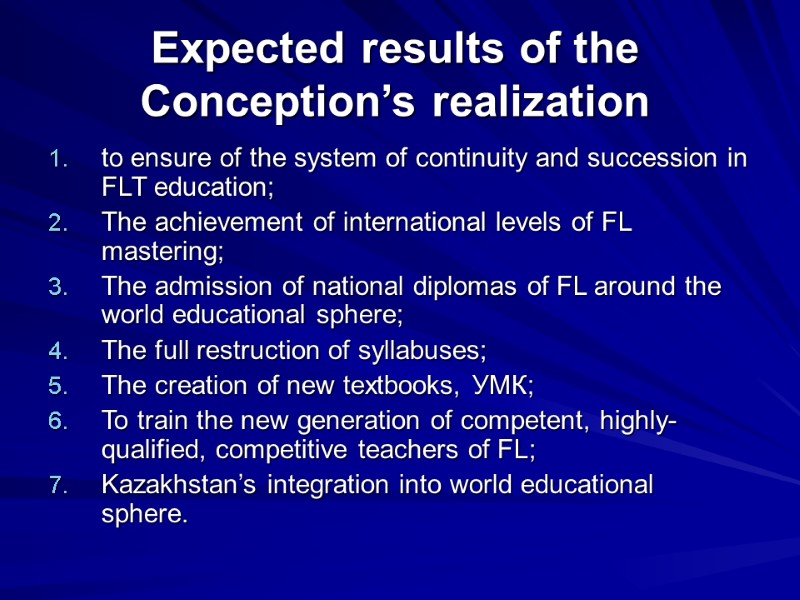
404-the_conception_of_foreign_languages_development_in_rk_lecture.ppt
- Количество слайдов: 21
 Lecture 1 (2h.) The conception of foreign languages education development
Lecture 1 (2h.) The conception of foreign languages education development
 Key questions The main aim, objectives, principles of the Conception; The National system of levels of Intercultural communicative competence formation; The stages of the Conception’s realization.
Key questions The main aim, objectives, principles of the Conception; The National system of levels of Intercultural communicative competence formation; The stages of the Conception’s realization.
 The conception of foreign languages education development in RK -
The conception of foreign languages education development in RK -
 Is a scientifically- practical and methodological document which defines the whole strategy, aims, objectives, levels, content and the main directions of foreign languages education development.
Is a scientifically- practical and methodological document which defines the whole strategy, aims, objectives, levels, content and the main directions of foreign languages education development.
 The main aim of the Conception To define the main directions of foreign languages education development and to create the National levels’ model of FL education
The main aim of the Conception To define the main directions of foreign languages education development and to create the National levels’ model of FL education
 The objectives of FL education development To reveal the real condition of FL education development at modern stage; To plan the theoretically-methodological basis of continuity and succession system of FL education development in RK; To define the system of continuity and succession of FL education development, taking into account all the stages of educational structure; To define the stages of this Conception’s realization; To forecast the expected results.
The objectives of FL education development To reveal the real condition of FL education development at modern stage; To plan the theoretically-methodological basis of continuity and succession system of FL education development in RK; To define the system of continuity and succession of FL education development, taking into account all the stages of educational structure; To define the stages of this Conception’s realization; To forecast the expected results.
 The condition of FL education at modern stage FL learning has been recognized as socially significant, important for professional life’s work of specialist; The place of FL has been defined, as a language of International communication; FL to young learners has been introduced; Such notions as FL education, levels of FL mastering, LSP, LAP have been appeared; New pedagogical technologies (including distance learning) have been introduced; Standard programmes, syllabuses for FL and LSP to linguistic and non-linguistic Universities have been made up; UMK for all grades of Secondary schools (French, German, English) have been established; Specialized training and retraining of FL teachers of schools with different profiles (economic, humanitarian, technical, mathematician) have been started.
The condition of FL education at modern stage FL learning has been recognized as socially significant, important for professional life’s work of specialist; The place of FL has been defined, as a language of International communication; FL to young learners has been introduced; Such notions as FL education, levels of FL mastering, LSP, LAP have been appeared; New pedagogical technologies (including distance learning) have been introduced; Standard programmes, syllabuses for FL and LSP to linguistic and non-linguistic Universities have been made up; UMK for all grades of Secondary schools (French, German, English) have been established; Specialized training and retraining of FL teachers of schools with different profiles (economic, humanitarian, technical, mathematician) have been started.
 The principles of the Conception The principle of continuity and succession of FL education corresponds the contemporary needs of the person and society, which suppose general conceptual approaches to the realization of harmonized content and technologies of FLT at all levels of FL education;
The principles of the Conception The principle of continuity and succession of FL education corresponds the contemporary needs of the person and society, which suppose general conceptual approaches to the realization of harmonized content and technologies of FLT at all levels of FL education;
 The principle of communicative cross-cultural interaction Provides the development of learners’ ability to intercultural FL communication
The principle of communicative cross-cultural interaction Provides the development of learners’ ability to intercultural FL communication
 The principle of problematic ness and interactiveness in the organization of FLT Involves the learners to the process of cognitive language learning as well as the ability to participate in the integrated decision-making process;
The principle of problematic ness and interactiveness in the organization of FLT Involves the learners to the process of cognitive language learning as well as the ability to participate in the integrated decision-making process;
 The principle of individual orientation in FLT Implies the use of various approaches of FLT;
The principle of individual orientation in FLT Implies the use of various approaches of FLT;
 The principle of fundamentality of FLT Presupposes learners profound language knowledge
The principle of fundamentality of FLT Presupposes learners profound language knowledge
 The principle of ensuring International standards of language levels Is realized through the content and technologies which are appropriate to the aim of FLT and also objective International standard means of assessment;
The principle of ensuring International standards of language levels Is realized through the content and technologies which are appropriate to the aim of FLT and also objective International standard means of assessment;
 The principle of creativity and cognitive activity in FLT Implies the use of projects, role-plays and other activities stimulating creativity and cognitive work of the learners;
The principle of creativity and cognitive activity in FLT Implies the use of projects, role-plays and other activities stimulating creativity and cognitive work of the learners;
 The principle of reflexive self-regularity The ability to understand yourself and surroundings;
The principle of reflexive self-regularity The ability to understand yourself and surroundings;
 The principle of flexibility The capacity to live in polycultural world, be adaptable to the changes in socio-economic life and professional sphere;
The principle of flexibility The capacity to live in polycultural world, be adaptable to the changes in socio-economic life and professional sphere;
 The principle of professionalism in FLT Presupposes the usage of FL in professional purposes.
The principle of professionalism in FLT Presupposes the usage of FL in professional purposes.
 The National system of continuity and succession in FLT education is represented by the levels’ model of FL education.
The National system of continuity and succession in FLT education is represented by the levels’ model of FL education.
 The National system of levels of intercultural communicative competence formation Level A1 – Survival level (2-4 grades - elementary course of secondary education); Level A2 – Waystage level (5-10 grades - main course of secondary education); Level B1 – Threshold level (11-12 grades - Profile - oriented secondary education); Level B2 – Vantage level (post-secondary professional education, non-linguistic higher educational institutions + LSP); Level C1 – Effectiveness (linguistic higher educational institutions + professional course of LAP, LSP); Level C2 – Mastery (magistracy+LAP,LSP for scientific research).
The National system of levels of intercultural communicative competence formation Level A1 – Survival level (2-4 grades - elementary course of secondary education); Level A2 – Waystage level (5-10 grades - main course of secondary education); Level B1 – Threshold level (11-12 grades - Profile - oriented secondary education); Level B2 – Vantage level (post-secondary professional education, non-linguistic higher educational institutions + LSP); Level C1 – Effectiveness (linguistic higher educational institutions + professional course of LAP, LSP); Level C2 – Mastery (magistracy+LAP,LSP for scientific research).
 The stages of the Conception’s realization The first stage ( 2004 – 2007 ) to work up standards, syllabuses, textbooks, УМК for the whole National system of continuity and succession in FLT education; The second stage (2004 – 2005) the organization of training and retraining of FLT specialists; The third stage (2007 -2015) the full transition to highly-qualified FLT specialists and credit technology at all stages of post-secondary education.
The stages of the Conception’s realization The first stage ( 2004 – 2007 ) to work up standards, syllabuses, textbooks, УМК for the whole National system of continuity and succession in FLT education; The second stage (2004 – 2005) the organization of training and retraining of FLT specialists; The third stage (2007 -2015) the full transition to highly-qualified FLT specialists and credit technology at all stages of post-secondary education.
 Expected results of the Conception’s realization to ensure of the system of continuity and succession in FLT education; The achievement of international levels of FL mastering; The admission of national diplomas of FL around the world educational sphere; The full restruction of syllabuses; The creation of new textbooks, УМК; To train the new generation of competent, highly-qualified, competitive teachers of FL; Kazakhstan’s integration into world educational sphere.
Expected results of the Conception’s realization to ensure of the system of continuity and succession in FLT education; The achievement of international levels of FL mastering; The admission of national diplomas of FL around the world educational sphere; The full restruction of syllabuses; The creation of new textbooks, УМК; To train the new generation of competent, highly-qualified, competitive teachers of FL; Kazakhstan’s integration into world educational sphere.

